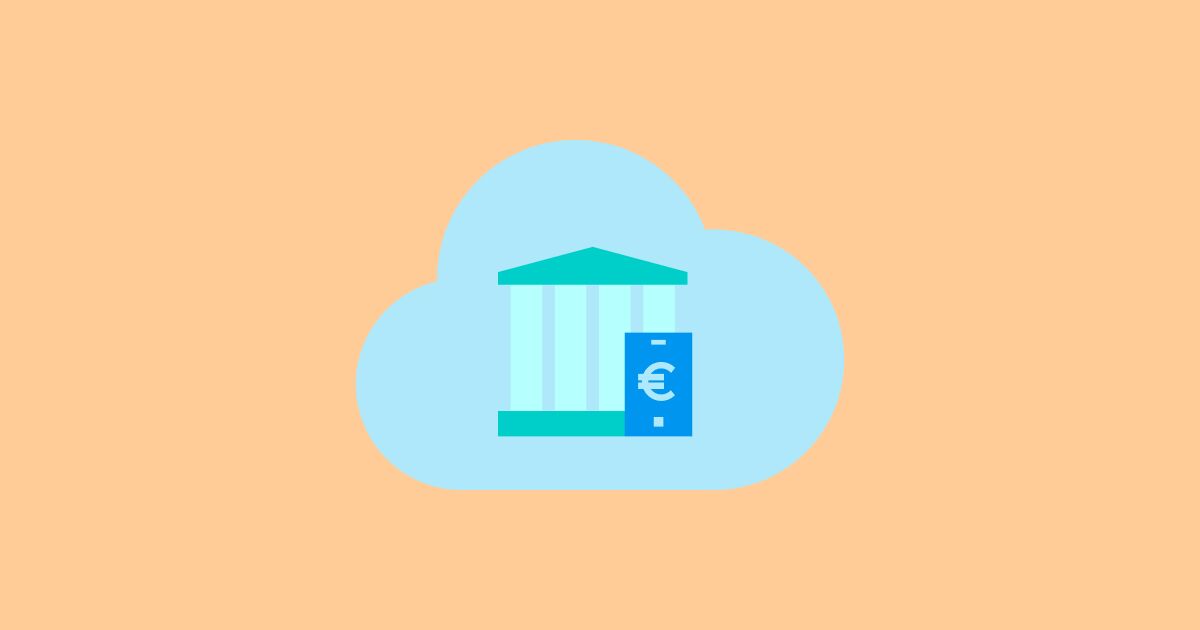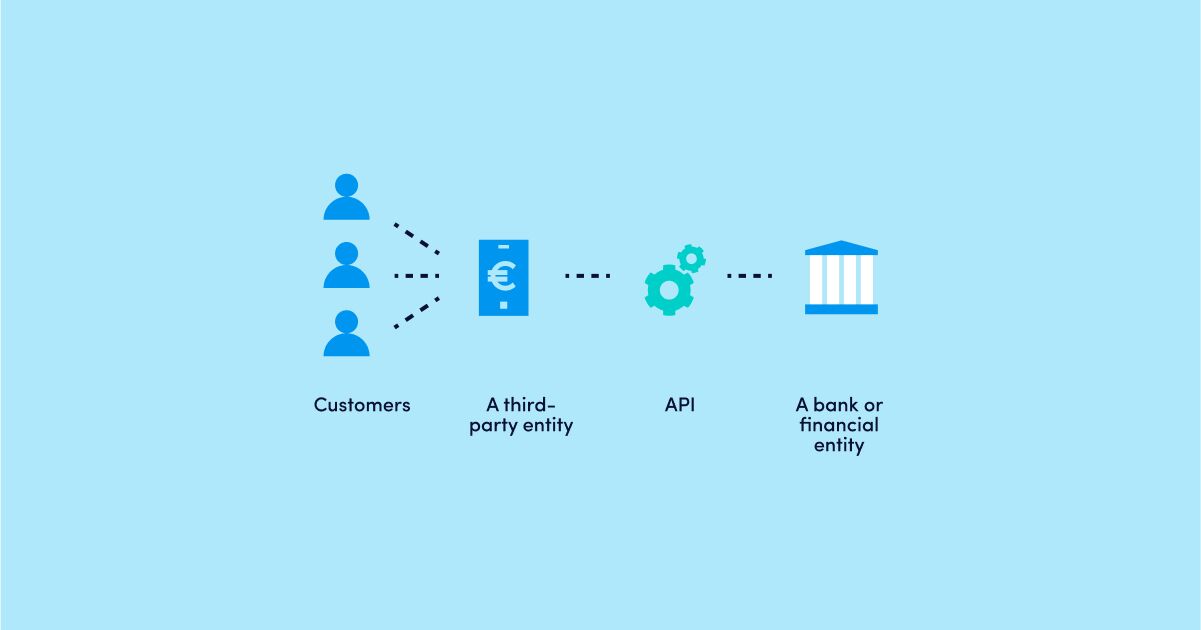What are the biggest fintech trends for 2020? The evolution of technologies in financial services is expected to accelerate, as the global fintech venture capital (VC) investment has reached $30.8 billion in 2018, up from $1.8 billion in 2011 with the US, UK, and Germany being the top investment countries.
On the one hand, fintech companies currently represent a small share of the industry, just 6% or $674,9 billion of the total annual revenue of financial services (Crunchbase & IMF-WB, 2019). On the other hand, fintech accelerates growth and innovations of the global economy and a quarter of the financial service industry’s venture and start-up funding is directed to this area.
We believe the future is still clouded with uncertainty, while fintech continues to grow than ever before. To cut through all these discussions and forecasts, we have identified current fintech trends and drivers.
Read also about the fintech trends in 2021 and fintech trends in 2022.
NEW REGULATIONS FOR CRYPTO
Crypto industry will continue growing and strengthen its position in the world of payments. But crypto regulation must be changed to make cryptocurrency deals more transparent. This is one of obvious fintech trends in 2020.
Bitcoin can be considered as a speculative gamble on a store of value. For example, in December 2018, Bitcoin and other cryptocurrency prices dropped to its lowest, and later experienced another collapse.
To support cryptocurrencies, new regulatory authorities are trying to make crypto more transparent and governed. Financial Action Task Force (FATF) has also started checking how countries implement Crypto Standards that were released in June during the G20 summit when all the leaders agreed to comply with international requirements for crypto-assets and related service providers. More strict regulations were introduced to avoid global risks and financial instability associated with the issuance of stablecoins. In October, Facebook’s Libra project hit regulatory roadblocks in Europe, and PayPal, eBay, Visa, Mastercard, and Stripe dropped out of this initiative. This case and a growing interest of cryptocurrency issuance may explain why the European Union recommended the European Central Bank (ECB) to look into issuing its own digital currency.
When it comes to Europe, Estonia still remains the most preferred destination for blockchain companies. The mild jurisdiction has issued around 2000 crypto licenses, because of its license terms in the industry. Meanwhile the Swiss Financial Market Supervisory Authority (FINMA) recently approved bitcoin banks and issued licenses to two blockchain service providers for the first time. Today, one of them – cryptocurrency bank SEBA – is now fully operational and offers Swiss clients to open an account. Later in December, the bank will onboard clients from abroad.
From all this, we can also say that cryptocurrencies have great potential, and governments and banks will continue to explore new ways to support crypto projects and reduce risks.
ALL-IN-ONE MOBILE APPS
The phrase super app was introduced by BlackBerry founder Mike Lazaridis. It is an all-in-one mobile app that includes multiple daily apps, including, social financial, insurance, and other services.
Super apps are one of the biggest fintech trends. They still on the verge to enter the Europe market, but they have been actively used in the Asian-Pacific region. One of the mainstream apps in China is WeChat, an all-in-one messaging app, which offers games, online shopping, and financial services. Known as Weixin in China, it is a flagship product of gaming and social giant Tencent that was founded more than 20 years ago. Not so long ago, in 2017, WeChat Pay launched its services in Europe, offering its clients to link their account to international payment cards.
Another great example from Asia is Malaysian ride-hailing company Grab that has expanded in food delivery, medical advice, and financial services. In 2018, Grab acquired local Uber and UberEats.
Russia’s Tinkoff is planning to implement a new super-app, which will combine traditional banking services with lifestyle and leisure features and a marketplace for third party API-based in-app options.
Taking into account the current trend of super apps, there is no surprise that Mark Zuckerberg is planning to shift the focus of Facebook from social media apps to a one-stop-shop messaging service worldwide.
OPEN BANKING OPEN API
The concept of Open banking means a shift from a very close model to a shared one, where different financial industry’s stakeholders can be authorised to access personal and other financial data. It means that control of data gets back into the hands of customers, while banks can embrace Open Banking and generate additional revenue by crowdsourcing the development of new services.
From now on, Open API will allow customers to connect to banks via different systems and apps. As a result, the competition will rise, and multinational companies will take advantage of implementing a payment functionality in their business processes or messenger apps. Next year, there will be definitely a surge of messenger apps that also offers financial services. Revolut is already operating in the market with an Open API solution that allows companies to automate payment processes by combining Revolut for Business account with their software or platform.
MERGER AND COOPERATION BETWEEN FINTECH AND BANKING
Banking and fintech cooperation is one of obvious fintech trends to watch in 2020.
To deliver a comprehensive suite of solutions and enjoy the best of both worlds, banks need to establish a dialogue and cooperate with fintech companies. Otherwise, traditional financial institutions will only innovate under the circumstances, when the pressure from customers and competition rises.
What are the motives and benefits of banking and fintech cooperation? It is freedom and innovative services at customers’ fingertips because together fintechs and banks can work harder to introduce new technologies. To make it successful, groundwork related to compliance, regulations, and licensing requirements must be taken seriously.
SolarisBank is a benchmark in promoting cooperation and a new way of banking services. The fintech company offers Banking as a Platform (Baap) services with a German banking license, combining regulatory banking expertise and a start-up. In 2018, the company also partnered with Boerse Stuttgart Group (German Stock Exchange in English) to create a cryptocurrency exchange platform. But the most recent initiative is an agreement with Alipay.
Cooperation between banks and fintechs has extended to the UK. Santander Bank is one of the first banks in the UK to embrace blockchain based payments in cooperation with Ripple. The bank launched Santander One Pay FXa money transfer service that allows customers to client international transfers on the same or next day.
Another excellent example is synergy between Apple Pay and Goldman Sachs. Both giants are getting ready to launch a joint credit card that will incorporate the logo of Apple digital wallet. Everyone is on it, so does JPMorgan Chase & Co, which is also tapping the fintech industry and will invest $25 million to help start-ups targeting low-income Americans.
FINTECH MERGING WITH OTHER INDUSTRIES
Cross-industrial fintech is setting foot into other industries, as it becomes more and more accepted and replaces many former industry systems. It can become one of fintech megatrends in 2020.
With so many fintech companies on the market, the cost of sale in back-office and new services lowers. It is expected to see more and more partnerships and ventures in a multitude of industries. For example, ZAKA is a digital ID solution for Sub Saharan Africa that verifies identity using biometrics and help people get the loan and health services faster. Another African fintech is Akiba Digital. It is a savings platform with a gamified interface to educate and nudge unbanked users.
Wajenzi is an Amsterdam based Equity-Crowdfunding platform to kick-start and raise funding for diaspora businesses and investors, whereas MigPort is an Istanbul-based start-up that anonymously connects refugees with volunteers to solve their financial, bureaucratic, and educational problems, using the website or app.
Tokyo-based investment bank MBK stands out from the rest of the fintech companies and examples. It disrupts the EU real estate market with tokenization of the sale of a property in Estonia. The company has partnered with Singapore-based real estate firm BitofProperty (BOP) to make it come true.
LEDGER TECHNOLOGIES
Fintech and blockchain are connected quite well. It turns out that cryptocurrencies were the first use case of the distributed ledgers. However, blockchain and distributed ledger technology (DLT) differ. With blockchain, everyone on the network can see all the transactions, whereas with DLT that is not the case.
Blockchain can be used for different purposes – money transfers, settling trades, and voting. Using this technology, customers no longer have to confirm with a central clearing authority.
Do you think the zenith of blockchain will ever come? Blockchain cannot be used for every single problem, but for many sectors, it is the perfect solution.
We can see that banks, brokerages, insurers, and regulators are actively putting to good use the blockchain technology and it has only just started. The effort to support and speed up global payments is one of the biggest advantages. For blockchain and distributed ledgers have a bright future, but it is important to educate key stakeholders within companies, because the value proposition isn’t clear for many of us.
With about 82 live patents in hand, the Bank of America is the world’s largest blockchain patent holder and beats out even IBM, Mastercard, and PayPal . But the bank has recently grown doubtful that blockchain will amount to anything in the near future. Similarly, Ripple replaces the SWIFT and offers blockchain-based payment transfers worldwide. Swiss multinational investment bank UBS, Royal Bank of Canada, and the National Bank of Abu Dhabi have already adopted Ripple’s solutions to provide real-time payment transfers.
INDEPENDENT AND DECENTRALIZED FINANCE
Have you ever thought about making payments without being engaged with Visa and MasterCard? Actually, it is possible and in the long run, banks worldwide are thinking of replacing traditional payment networks with alternative payment systems.
When it is a question of Decentralized Finance, traditional financial services can be provided without any authority or intermediaries. A wave of crypto business, that has surged in the last few years, is moving really fast and bringing new payment platforms to life, including Google Pay, Apple Pay, AliPay, WeChat Pay, and blockchain-based Ripple.
One of the most recent development is the new Pan-European Payment System Initiative (PEPSI) that was created to manage all forms of cashless transactions. 20 European banks are setting up a payment system to challenge dominant Visa, Mastercard, Google, and PayPal. This is not the first-time banking institutions in Europe undertake a project of launching a European payment system. In 2012, they were working on the Monnet card project that actually never took off.
INNOVATION IN BANKING
Bricks and mortar banks are heavily investing in technologies and leveraging their brand awareness to put up a fight with fintechs and technology companies that are trying to take stakes in financial services.
Today’s customers want 24/7 access and simple apps that require a little human contact. We can expect financial services apps will offer a wider range of functionalities from your phone. Banking apps are about to roll out cardless ATMs that improve transaction security, as the cardless functionality usually requires biometrics and built-in passwords. For example, Bank of America has a mobile app that includes an option of withdrawing money with smartphones at cardless ATMs. To build digital offerings in Europe’s banking and asset management, Berlin-based fintech company has secured funding of €41.5 million from Ping An’s Global Voyager Investment Fund. Ping An is one of China’s biggest financial groups. It is renowned for investing and delivering cutting edge financial services.
In addition, tomorrow’s banking will be shaped by Artificial Intelligence (AI). Banks of Europe are planning to actively use AI to interact with their customers, according to Accenture. AI together with blockchain are seen as key technologies that will change the concept of banking in the years to come.
All things considered, we have come to the conclusion that many innovations are making banking more personal, secure, and easy to use. Nowadays, banks and other financial service providers are set out to redefine their processes, services and how they interact with customers because technologies and customer expectations continue to evolve. In fact, fee-free payments, personalized services, cryptocurrency exchange, and lending platforms have emerged as a must-have in financial services.
Even though many financial institutions have already built cutting-edge platforms that include all this, there are more innovations and fintech trends to come! Just keep an eye on our blog articles to be the first one to find out.
Advapay is a technology company providing the Digital Core Banking platform to empower fintech clients or digital banks to start their businesses and accelerate digital transformation. The platform delivers all essential functionalities, a front-to-back system and a set of tools to customise and bring new integrations. With Advapay, potential and existing customers can connect either to the cloud-based SaaS or on-premise software. Besides the technical infrastructure, the company provides business advisory and fintech licensing services. Interested to learn more, please drop us a message.








